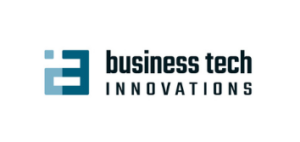
In a groundbreaking revelation, recent research conducted by IDC underscores a profound shift in the corporate landscape. Sustainability, encompassing environmental, social, and corporate governance (ESG) factors, is now deeply woven into the fabric of organizations’ operations, strategies, planning, and goals, marking an unprecedented era of conscious business practices.
The Impact of Information and Communications Technology (ICT)
One industry at the forefront of this sustainability revolution is Information and Communications Technology (ICT).
With sustainability being the goal, ICT, along with engineering services committed to energy efficiency, emerges as the linchpin in curbing environmental challenges, particularly the reduction of carbon footprints, which is a primary contributor to global warming.
Sustainability as a Business Imperative
In the evolution of business priorities, sustainability goals have shifted from “nice to have” to “must have.” Organizations of various sizes, spanning the public and private sectors and operating across different continents and industries, have realized that pursuing sustainability isn’t just an ethical endeavor but also a driver of significant business value.
Notably, these value enhancements span both top-line improvements, such as increased revenues and profits, and bottom-line enhancements, like reduced operational costs. Some organizations are experiencing benefits on both fronts, leading to remarkable results.
Financial Performance and Sustainability
IDC’s Future Enterprise Resiliency and Spending Survey, Wave 4, reports that nearly two-fifths of line of business (LOB) managers have observed or anticipate improved financial performance as a direct result of their investments in sustainability-related initiatives. This underscores that the alignment of business objectives with sustainability is a clear pathway to financial success.
Sustainability and IT Efficiency
Forward-thinking organizations have recognized that ESG objectives are intrinsically linked to IT efficiency improvements. This connection is evident across various economic sectors and business personas, including IT professionals, LOB managers, C-level executives, and more.
Key findings reveal that IT infrastructure and software efficiency improvements are top priorities for sustainability-focused initiatives. Furthermore, while North American and European respondents share similar sustainability priorities, the Asian/Pacific region demonstrates unique preferences in their choice of top priorities and the urgency attached to them.
Different industries have distinctive sustainability priorities, with manufacturing organizations prioritizing efficiency across technology components, utilities and transportation focusing on energy management and efficiency, and retail and healthcare emphasizing supply chain sustainability.
ICT Industry: Part of the Solution
The ICT industry, spanning both infrastructure and software, along with human capital, particularly IT departments, plays a pivotal role in driving sustainability-focused projects. With the industry responsible for approximately 3-4% of global carbon emissions, it holds an unparalleled opportunity to be part of the solution to the planet’s ecological challenges.
To realize this potential, the ICT industry must meet a fundamental condition: ICT itself must be sustainable. This involves infusing ICT hardware infrastructure, software, and delivery models with attributes like energy efficiency, adherence to circular economy principles, and life cycle management capability.
Shared attributes of sustainable ICT encompass IT efficiency, energy efficiency, and the extension of product life cycles, leading to reduced resource consumption, lowered operational costs, and increased attractiveness for vendors’ current and potential employees.
A Holistic Approach to Sustainable ICT
Sustainable ICT encompasses the entire technology stack, including processes and best practices. However, the cornerstone lies in hardware infrastructure, which includes energy-efficient processors, servers, ITAM/ITAD, ICT infrastructure delivery models, energy-efficient ICT infrastructure designs, cooling solutions, and sustainable software lifecycles.
The Competitive Landscape
Leading IT equipment vendors such as Cisco, HPE, Dell, and IBM have long recognized the importance of sustainable IT and are reaping the rewards of their efforts to embed circular economy principles and product efficiency into IT product delivery.
These vendors hold significant mindshare among IT users when it comes to sustainability and ESG projects. Furthermore, IT consultants, systems integrators, and sustainability consulting specialists are in high demand for two primary reasons: to navigate the complex ESG regulatory landscape and to help implement sustainable products and services.
The competitive field extends far beyond these groups due to the diverse nature of sustainability/ESG use cases. Hardware and software vendors, cloud providers, sustainability specialists, IT engineering firms, and others are competing to enhance the quality and competitiveness of the field.
Sustainability has become a critical driver of success in the modern business landscape. For organizations looking to thrive and make a meaningful impact, sustainability isn’t merely a choice but an essential strategic imperative. The ICT industry, in particular, is proving to be a pivotal force in realizing sustainability goals and steering businesses toward a greener and more prosperous future.




